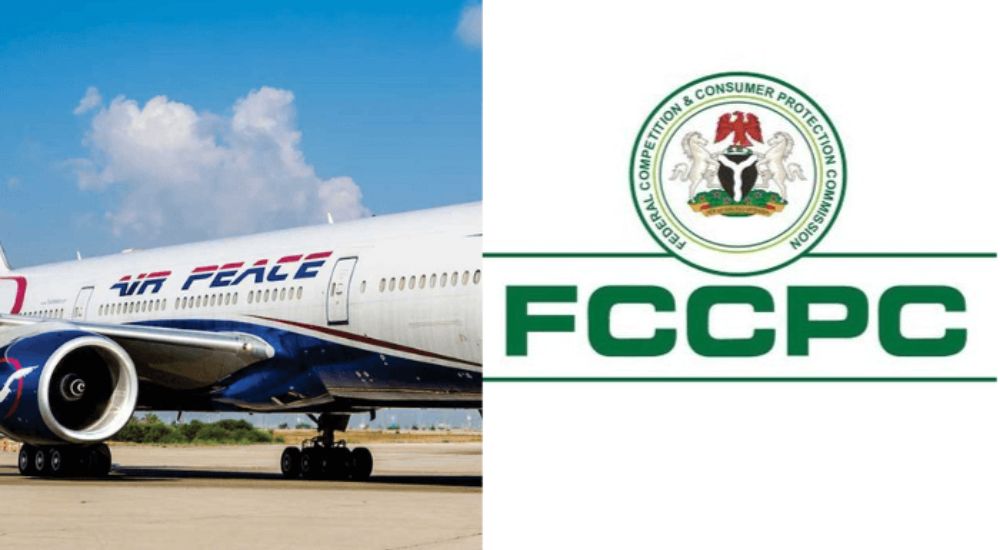The Federal Competition and Consumer Protection Commission (FCCPC) has initiated an investigation into Air Peace Limited, a Nigerian airline, following a surge in passenger complaints regarding the airline’s refund practices. The core issue revolves around allegations of Air Peace failing to refund ticket fares, even in instances where the airline itself cancelled the scheduled flights. This practice has sparked widespread public outcry and accusations of consumer rights violations, prompting the FCCPC to take action. The commission has formally summoned Air Peace management to appear before its Abuja headquarters on June 23, 2025, to address these concerns and provide evidence related to their refund procedures.
The FCCPC’s summons, dated June 13, 2025, cites specific sections of the Federal Competition and Consumer Protection Act 2018 that Air Peace’s alleged actions potentially violate. Sections 130(1)(a) and (b), and 130(2)(b) of the Act guarantee consumers the right to timely refunds when bookings or reservations are not honored due to the service provider’s failure. The commission argues that Air Peace’s alleged refusal to refund tickets, particularly in cases of flight cancellations initiated by the airline itself, constitutes a breach of these consumer protection provisions. The FCCPC emphasizes the principle of fair dealing enshrined in the Act, designed to safeguard consumers against unfair, unjust, or unreasonable practices by service providers.
The FCCPC, invoking Sections 32 and 33 of the Federal Competition and Consumer Protection Act 2018, has demanded that Air Peace provide comprehensive documentation related to its refund processes. This includes a detailed log of all refund-related complaints received over the past 12 months, comprehensive records of all refunds processed to date, a complete list of all cancelled flights across all routes within the same period, and a description of the measures taken by the airline to mitigate the hardship faced by passengers affected by cancellations. This documentation is crucial for the FCCPC’s investigation into the extent of Air Peace’s alleged non-compliance with consumer protection laws. Section 33(3) of the FCCPA mandates compliance with the commission’s summons, and failure to comply could result in significant penalties, including substantial fines or imprisonment.
In response to the media reports about the summons, Air Peace issued a statement claiming that they had not received any formal notification from the FCCPC. The airline asserted that they learned about the alleged summons through media reports and maintained that they adhere to globally recognized procedures for managing passenger refunds and customer concerns. Air Peace emphasized its commitment to complying with regulations and respecting government agencies, assuring the public that they would respond accordingly and provide necessary clarifications if and when they receive an official communication or summons. This statement highlights a discrepancy between the FCCPC’s claim of issuing a formal summons and Air Peace’s assertion of not receiving it.
While not explicitly mentioned by the FCCPC, the summons comes on the heels of a public disagreement between Senator Adams Oshiomhole and Air Peace officials regarding allegations of extortion of Nigerian passengers. The incident stemmed from Senator Oshiomhole missing a flight, which he attributed to racketeering activities by airline staff. Air Peace claimed that Oshiomhole arrived late at the airport, while the senator countered that he, along with numerous other passengers, witnessed airline staff prioritizing passengers who arrived later. Oshiomhole alleged that airline staff demanded additional payments from approximately 20 to 30 passengers to reschedule them onto a later flight. This incident potentially fuelled existing public discontent with Air Peace’s customer service practices and may have contributed to the influx of complaints received by the FCCPC.
The FCCPC’s investigation into Air Peace’s refund practices carries significant implications for consumer protection within the Nigerian aviation sector. The outcome of the investigation could set a precedent for how airlines handle passenger refunds and address customer complaints. If Air Peace is found to have violated consumer protection laws, the resulting penalties could serve as a deterrent for other airlines engaging in similar practices. Furthermore, the investigation highlights the importance of regulatory bodies like the FCCPC in holding businesses accountable for their treatment of consumers and ensuring fair competition within the marketplace. The case also underscores the power of consumer complaints in driving regulatory action and protecting consumer rights. The incident involving Senator Oshiomhole, although not the direct cause of the investigation, further amplified public scrutiny of Air Peace’s practices and added to the pressure on the FCCPC to take action.


